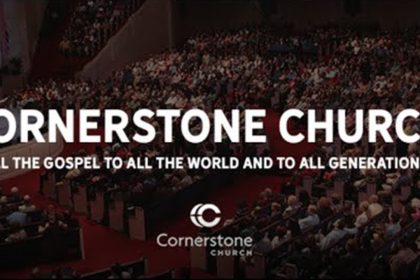For Brother Xavier
Boutiot, treasurer of a Benedictine abbeyin
central France, pulling the abbey’s investments from fossil fuels was an
obvious step. Committed to the “Green Church” initiative for four years, the
Olivetan monks aimed for consistency in all aspects of their community life.
“Financial investments have an ecological impact that is 25 times greater than
our daily actions!” emphasized the treasurer.
To embark on this
ecological and financial transition, the abbey had to scrutinize its
investments, which was not straightforward. “The financial world is so opaque
for basic investors like us, who don’t have access to all the information,”
explained Boutiot. “We called our banks that were not on board with this direction, explained our reasoning, and applied some pressure by saying, ‘Either you support us in this approach, or we’ll switch banks.’”
The French abbey is among the religious organizations cited by an international
coalition of Christian associations for divesting from fossil fuel companies.
On November 12, at COP29 in Baku, Azerbaijan, the coalition announced that 27
dioceses, congregations, parishes, and associations committed to ethical
finance.
Divesting from fossil fuel companies
The coalition of Christian associations at
COP29 comprises various faith-based organizations collaborating to address
climate change from a Christian perspective. It includes groups such as
International Cooperation for Development and Solidarity (CIDSE, an association
of Catholic social justice organizations from Europe and North America), the
Christian Climate Observers Program (CCOP, a non-denominational Christian
presence at COP29), and other faith-based organizations collaborating under
various banners for climate advocacy and action.
Similarly, Operation Noah, a UK-based
Christian charity dedicated exclusively to climate change, supports various
mainstream campaigns and partners advocating for a fair and rapid transition
away from fossil fuels. The organization recently announced a global divestment
initiative, urging faith institutions to withdraw their investments from fossil
fuel companies. The announcement coincided with the November 12 opening of COP29, aiming to amplify the call for ethical
investment practices within the Christian community. “By divesting from fossil fuel companies, faith institutions are
sending a clear message that they are committed to a just and sustainable world
for all,” read the statement.
This new wave of divestment involves Catholic dioceses, religious orders, and Christian associations across the globe. In total, more than 570 faith institutions have committed to moving away from fossil fuels. This initiative goes beyond simply reducing carbon footprints; it embodies putting faith into action to protect our common home.
According to the coalition statement issued by the Laudato Si’ Movement, faith leaders worldwide, from Pope Francis to the Archbishop of Canterbury and organizations such as the World Council of Churches, have called for an end to the fossil fuel era and a just transition to clean energy, with many supporting the Fossil Fuel Non-Proliferation Treaty.
The reasons to divest from fossil fuels are not only ethical but financial: the International Energy Agency predicts fossil fuel use will peak before 2030 and then decline. Religious institutions, managing $3 trillion globally, have divested from fossil fuel companies more than any other sector, aligning their investments with their values.
The Vatican and the World Council of Churches have urged groups to withdraw from fossil fuel companies and invest in climate solutions. And in a decade, over 1,600 institutions in all sectors with $40 trillion in assets have committed to divestment. Faith communities also push governments and banks to phase out fossil fuel support and invest in clean energy.
At the French Benedictine abbey,
Brother Boutiot now proudly lists the abbey’s investments: a Mexican company
managing mobile surgical units in rural areas, a French firm combating
over-indebtedness, and another supporting initiatives to prevent depopulation
in small villages. “I didn’t know about any of this before,” admitted the monk. “It’s an entire economy that bankers don’t talk to us about!”






